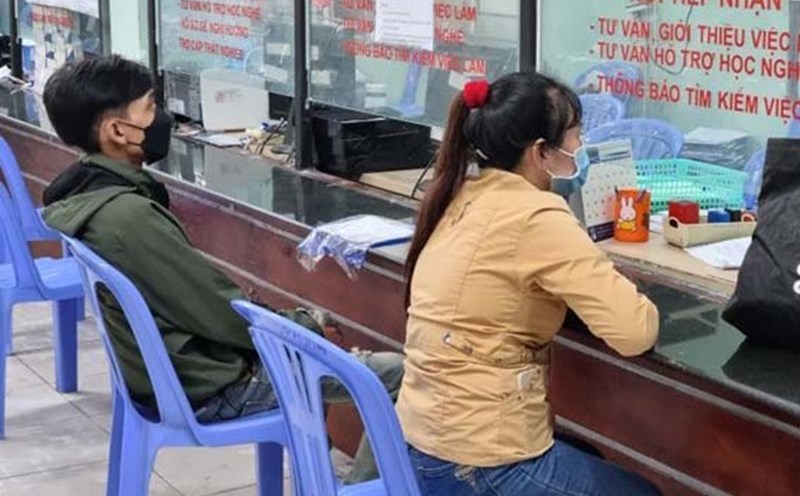People receiving vocational training support tend to decrease
According to statistics from the Ministry of Home Affairs, in the first quarter of 2025, the whole country has resolved to receive unemployment benefits (TCTN) for nearly 124,000 workers, most of whom are in the group without degrees or certificates.
According to data from the Institute of State Organization Science and Labor (Ministry of Home Affairs), in the first quarter of 2025, the whole country recorded 144,889 people applying for TCTN, a decrease of 29,600 people compared to the fourth quarter of 2024 and 24,200 people compared to the same period in 2024.
In this quarter, 123,835 people have decided to receive TCTN, 406,098 people have been consulted, 31,894 people have been introduced to jobs and 3,636 people have been supported with vocational training. The majority of employees who submit applications for TCTN are in the group without degrees or certificates, accounting for 59.2%; those with a university degree or higher account for 18.7%; college degree 7.6%; intermediate level 6%; 8.5% of those applying for benefits have primary vocational certificates and certificates.
Notably, the rate of workers registering for vocational training after unemployment is still very low compared to the number of people who have decided to receive unemployment benefits.
According to the report summarizing the implementation of the Law on Employment and assessing the current situation of related social relations of the Ministry of Home Affairs, from 2015 to March 2024, the total number of people applying for TCTN nationwide is 7,605,726 people, 14 times higher than in 2015 (527,576 people); 7,439,091 people have decided to receive TCTN.
As of the end of March 2024, the whole country had 261,676 people receiving vocational training support. The number of people receiving vocational training support has tended to decrease in recent years.
Low regime, not enough to attract workers
Explaining the reason why unemployed workers are not interested in vocational training, Mr. Le Quang Trung - former Deputy Director in charge of the Department of Employment said that due to awareness, policies, and organization of both vocational training institutions and enterprises.
Mr. Trung pointed out that the content and vocational training are not close and do not meet the actual needs of the labor market; teaching skills are not in accordance with business requirements. In addition, workers are aware of limitations and lack of confidence in the quality of training facilities or do not want to participate in training while needing jobs immediately to make ends meet. Not to mention, the vocational training support regime is low (1,500,000 VND/person/month), not supported for living expenses, travel... The coordination between training institutions and businesses is still limited, the outputs of vocational training are not specific.
To attract unemployed workers to learn a trade in the coming time, Mr. Trung proposed specific solutions.
Accordingly, it is necessary to organize an assessment of both policies and laws on vocational training regimes for unemployed people, as well as the organization and implementation, finding out the causes, bottlenecks, capabilities and real needs of the labor market (TTLD) to have appropriate solutions.
It is necessary to have a firm grasp of the ability and aspirations of each unemployed person when unemployed to advise and introduce vocational training to unemployed people. Continue to improve the legal system related to vocational training for unemployed people, vocational training institutions... especially vocational training guidance according to the provisions of the newly agreed Employment Law. Completing the information system on TTLD, especially TTLD forecasting; improving the capacity of employment service (DVVL) of employment service organizations; vocational training and vocational training associated with the needs of businesses, organizations...
According to Article 42 of the 2013 Law on Employment, unemployment insurance policies include: Unemployment benefits; support for job counseling and referral; vocational training support; support for training, fostering, and improving vocational skills to maintain employment for workers.











